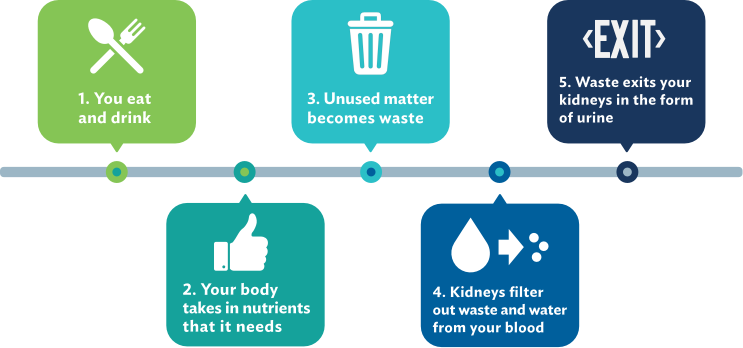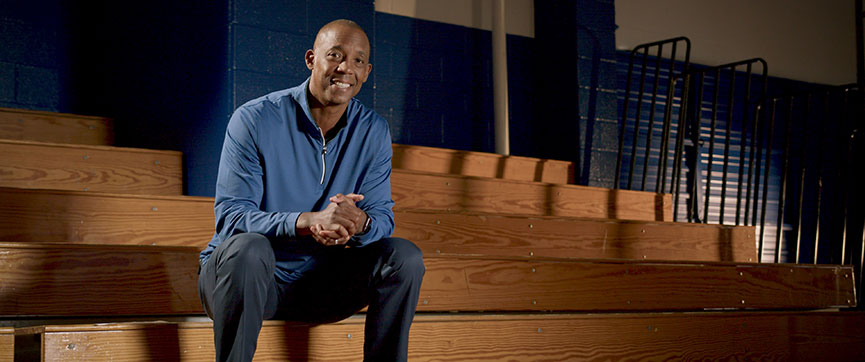
How Kidneys Work
Most people are born with two kidneys. They’re bean-shaped organs, about the size of fists, located on either side of your spine near the middle of your back. These amazing organs help keep you healthy in so many ways—which is why kidney function is so crucial to your overall well-being.
Masters of Waste Removal
Your kidneys’ main function is to maintain a chemical balance in your body, 24/7. Think of them as your own personal complex waste treatment plant. Healthy kidneys work by filtering your blood to create about 2 quarts—half a gallon—of urine every day.


Take a free kidney care class
Learn how to look after your kidney health and thrive—in a class that fits your life. Choose an educator-led or self-guided format.
Sign up now
“Don’t wait to get tested—it can save your life.”
Take the next step to early kidney disease detection.
Watch Sean’s story

Kidney parts and functions
For each kidney:
- Renal artery—the large artery that carries blood from the heart to the kidneys to be cleaned
- Nephrons—millions of these tiny filtration centers exist throughout the kidneys
- Glomerulus—a special “strainer” inside each nephron that keeps the blood cells and necessary substances in your blood and filters extra fluid and waste out
- Ureter—the tube from the bladder that allows urine to exit your body. Urine is made as kidneys filter out excess fluid and waste
Kidneys: The ultimate multitaskers
Kidneys don’t just clean your blood, they also play other vital roles in your overall health. On a daily basis, your kidneys work to:
- Release hormones to help regulate blood pressure
- Control sodium and fluid levels in your body
- Stimulate production of red blood cells, which carry oxygen throughout the body
- Create vitamin D to help your body absorb calcium
When kidneys stop working
Your body needs kidney function to survive. If the kidneys aren’t doing their job, waste builds up in the bloodstream to become debilitating and ultimately life-threatening. Fortunately, dialysis can take the place of some kidney functions and, along with medication and care, help a person live longer. In fact, some people live for decades with dialysis treatment. A kidney transplant may also be an option for people whose kidneys have stopped functioning.
Kidney failure occurs at stage 5 chronic kidney disease (CKD), also called end stage renal disease (ESRD). For people living with CKD, detection and treatment at early stages can help slow progression of the condition and keep kidneys functioning longer. Damage from chronic kidney disease is irreversible, so the earlier CKD is diagnosed and action is taken, the better.
Kidney failure occurs at stage 5 chronic kidney disease (CKD), also called end stage renal disease (ESRD). For people living with CKD, detection and treatment at early stages can help slow progression of the condition and keep kidneys functioning longer. Damage from chronic kidney disease is irreversible, so the earlier CKD is diagnosed and action is taken, the better.
Receive our e-newsletter
Get the latest news in kidney care plus delicious kidney-friendly recipes, plus inspiring stories from people thriving on dialysis.
Sign up now